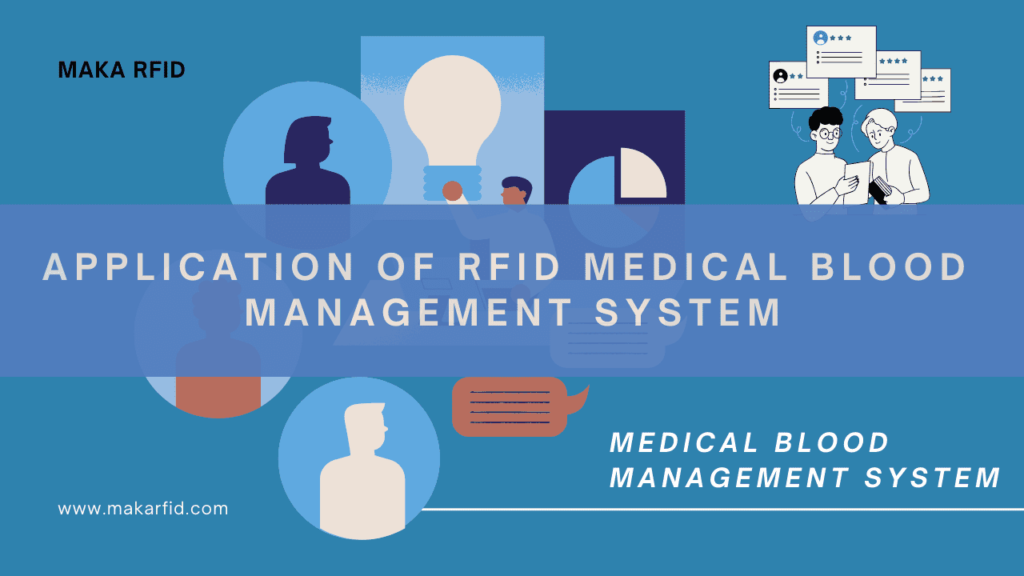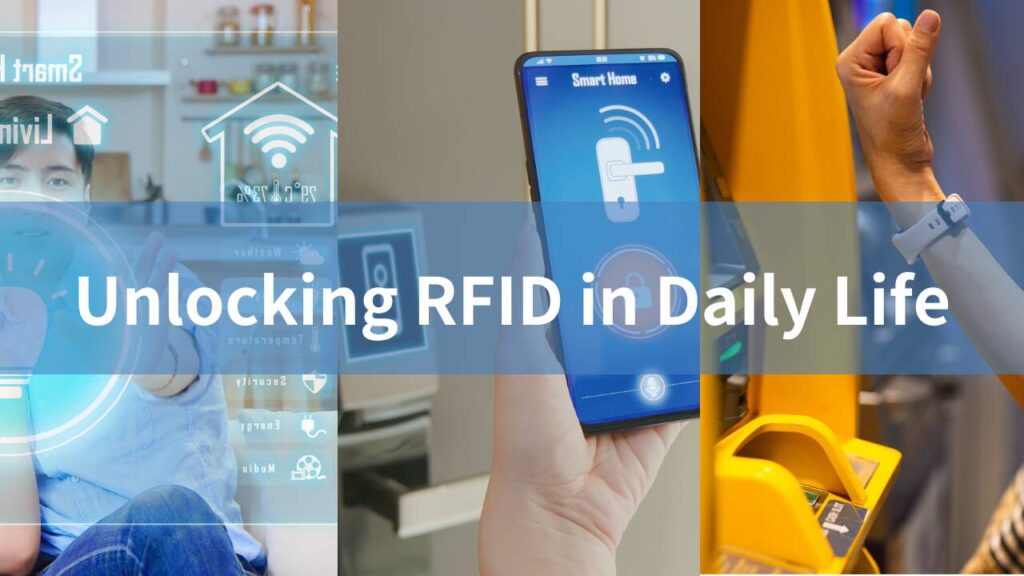RFID Blood Management System

RFID Medical Blood Management System Hey! Let’s talk about how RFID technology is making medical blood management even better! First, imagine we put a tiny RFID tag on each blood bag, like giving them a smart watch. This way, we can always know where the blood is, every step from collection to use is crystal clear, and we don’t have to worry about blood accidentally getting lost or used incorrectly anymore! Secondly, with the RFID system, managing blood inventory becomes super simple. It’s like having a meticulous butler, constantly keeping an eye on the quantity, type, and expiration date of each blood type. This way, hospitals can better allocate resources, neither wasting blood by letting it expire nor suddenly finding themselves short of blood. Lastly, RFID is also a super assistant, helping to automatically record and check data. For example, during blood transfusions, it carefully verifies whether the blood and patient information match, just like a thoughtful
Unlocking RFID in Daily Life

Unlocking RFID in Daily Life RFID in Everyday Technology: Revolutionizing Everything from Retail to Smart Homes This blog provides a comprehensive introduction to the numerous applications of RFID technology in daily life. From enhancing retail experiences and streamlining logistics, to transforming modes of travel and boosting security, RFID technology is subtly altering our day-to-day existence. Its application in smart homes and healthcare is set to deliver unprecedented experience and convenience. Let’s explore how RFID technology influences and improves our daily lives! Facebook LinkedIn WhatsApp RFID (Radio Frequency Identification) technology uses electromagnetic fields to automatically identify and track tags attached to objects, which have electronic information stored within them. This wireless, automatic data transmission and tracking method has made RFID an indispensable part of various daily technologies and has profoundly changed the way we interact with the world
RFID: Efficiency Key in Linen Industrial Washing

RFID: Efficiency Key in Linen Industrial Washing Hotels, hospitals, government units, garment factories and professional laundry companies have to deal with tens of thousands of work clothes and linen fabrics every year in terms of handing over, washing, ironing, finishing, storage and other processes. How to effectively track and manage the washing process, the number of washing times, the inventory status and the effective classification of each piece of linen is a huge challenge. To solve the above problems, UHF RFID provides an ideal solution. Facebook LinkedIn WhatsApp By embedding UHF laundry tags into the fabrics and binding the tag information with the information of the marked fabrics, and obtaining the tag information through the reader device, real-time tracking and management of the fabrics can be realized, forming the mainstream fabric rental management system in the market. The pain points: a wide variety and a huge number of linen grass management is difficult, high
Where the NFC applications next?

Where the NFC applications next? Which applications dominate the NFC market and which are growing the fastest? Among the NFC market segments, the applications in the fields of mobile payment, smart home, IoT and healthcare are all showing extensive and rapid growth trends. Among them, healthcare, smart home and IoT applications show the most prominent growth. For example, in the field of healthcare, some enterprises use NFC tags for the inventory of medical supplies and the wake-up and pairing of wearable medical devices. NFC wireless charging, which has emerged in the past two years, helps miniaturized wearable devices add NFC functionality so that they can be charged wirelessly, thus enhancing user experience and increasing functionality. Facebook LinkedIn WhatsApp With the rapid development of the Internet of Things (IoT), Near Field Communication (NFC) technology has gradually become the core of connecting IoT. From mobile payment to smart door locks, from medical devices to logis
The Unique Features of ID, IC, NFC, and UHF Cards: A Detailed Overview

The Unique Features of ID, IC, NFC, and UHF Cards: A Detailed Overvie Are you familiar with RFID smart cards? If you are still relatively unfamiliar, don’t worry, because today we will introduce you to all the knowledge of RFID smart cards in detail. RFID smart cards may sound a bit complicated, but if I mention IC cards or ID cards, you might have some understanding. This is because ID cards and IC cards are the two most common types of RFID smart cards. However, RFID smart cards are not limited to these two types, they also include some other types. Facebook LinkedIn WhatsApp Radio frequency communication standards are an important basis for tag chip design. At present, the communication standards related to RFID mainly include: ISO/IEC18000 standard (covering 125KHz, 134 KHz, 13.56MHz, 433MHz, 860-960MHz, 2.45GHz and other frequency bands, a total of 7 parts), ISO11785 (low frequency), ISO/IEC14443 standard (13.56MHz), ISO/IEC15693 standard (13.56MHz), EPC standards (includ
Automated Transportation: When AGV Meets RFID

Automated Transportation: When AGV Meets RFID Mastering Automated Transportation with AGV and RFID RFID, as a type of automatic identification technology, has very obvious advantages in its application on AGV carts. First, RFID has a strong resistance to other environmental factors, such as oil pollution, water, dust, and electromagnetic interference, so it is very suitable for the working environment of the production workshop. Secondly, RFID technology is quite mature, with low maintenance costs and simple technical construction, making it more advantageous in actual operation. For these reasons, the application of RFID site recognition on AGV carts is becoming more and more widespread. In addition, RFID can improve the work efficiency of AGV carts, making their role in the production process more important, thereby creating greater value for enterprises. Facebook LinkedIn WhatsApp What is AGV technology? AGV is an abbreviation for Automated Guided Vehicle, meaning “automatica
RFID Tech Boosts Electroplating Efficiency & Safety

RFID Tech Boosts Electroplating Efficiency & Safety Have you ever considered who uses RFID technology in electroplating production lines and why? This technology boosts automation, enhancing the accuracy and reliability of data collection and streamlining the production process. With RFID tags on products and equipment, users can track and monitor item movements throughout the production process.This technology enables real-time data collection, inventory management, and quality control. These advancements lead to cost savings and increased productivity. Numerous industries, including automotive, aerospace, and electronics, have integrated RFID technology into their electroplating production lines to improve their manufacturing processes. More Information Facebook LinkedIn WhatsApp Radio Frequency Identification (RFID) is an advanced wireless communication technology that can identify specific targets and read related data through electromagnetic fields or radio frequencies, a pr
The Rise of AI and RFID in Various Industries

The Increasingly Prominent Role of the Powerful Combination of AI and RFID Across Diverse Industries Explore the future of technology as artificial intelligence and RFID rise across industries. From healthcare to retail, these cutting-edge technologies are revolutionizing how businesses operate. Stay ahead of the curve and increase your organization’s efficiency, accuracy and productivity. Embrace the power of AI and RFID today. More Information Facebook LinkedIn WhatsApp Artificial Intelligence (AI) and Radio Frequency Identification (RFID) are two separate yet equally transformative technologies with unique applications and functionalities across a wide array of sectors, which when combined, can create high-impact solutions. AI, a pioneering technology that simulates and often surpasses human intelligence, includes subsets such as machine learning, deep learning, and natural language processing. This cutting-edge technology equips computer systems with a level of intelligence
Managing Linen and Uniform Inventory Using RFID

Managing Linen and Uniform Inventory Using RFID In today’s society, with the rapid development of technology, industries are exploring how to improve work efficiency and accuracy through technological means. A common challenge faced by hotels, hospitals, the military, fire departments, factories, and professional laundry companies is how to effectively manage thousands of work clothes and linens. These management tasks include handover, washing, ironing, sorting, and storage. Especially in tracking the washing process of each piece of linen, the number of washes, inventory status, and effective classification, there are huge challenges. Traditional laundry management methods have several problems: The manual registration of laundry tasks is complex, difficult to query, and inefficient. Due to concerns about cross-infection, some unwashed linen cannot be counted, which can easily lead to disputes about mismatched numbers. It’s impossible to accurately monitor each link in t
Utilize RFID technology with molds to enhance automated manufacturing

In the process of manufacturing and manufacturing, the use of molds can effectively improve labor productivity, save raw materials, and reduce manufacturing costs. In addition, products produced by molds have good consistency and interchangeability, making them suitable for mass manufacturing. Therefore, molds have a wide range of applications, involving various industries such as machinery, automotive, light industry, electronics, chemical, metallurgy, and building materials. However, the traditional manual paper-based recording method is no longer able to meet the timely understanding of the entire lifecycle of molds, including their usage, storage, maintenance, and disposal. With the rapid development of RFID technology, the introduction of RFID technology can easily achieve quick storage and inventory of molds, as well as fast registration, record keeping, and searching functions. Get More Information Advantages of using RFID technology for mold management: Achieve refined manage
